It's Hard to Write Stories Set in the Past. But Some Writers Do It Better Than Others.
The past is far more interesting than some recent projects make it seem.
I’ve been disappointed by some recent “period” entertainment projects — books, TV shows, and movies set in the past. Frankly, a lot of them seem to me to be missing the most interesting aspect of “the past,” which is that it can give you an entirely new perspective on the present.
Amazon Prime’s 2017-23 series The Marvelous Mrs. Maisel is set in the late 1950s and early 1960s, but it lost me its very first season when it introduced the character of Sophie Lemmon, played by Glee’s Jane Lynch. Despite living in a world that strongly discourages female comedians, Sophie has managed to become wildly successful — but only by pretending to be a country bumpkin, catering to crude stereotypes.
The character is loosely based on early female comedians like Phyliss Diller, Lucille Ball, and Joan Rivers — similarly educated, sophisticated women who also openly catered to the sometimes depressing stereotypes of their times in order to find success.
I was immediately intrigued by the fantastic dramatic possibilities of the Sophie Lemmon character. What does Sophie think about the compromises she felt that she’d had to make to find success in such a sexist world? And how would this affect Midge, The Marvelous Mrs. Maisel’s POV character, who is also seeking to knock down barriers and become a successful female comedian?
Alas, Sophie quickly becomes nothing but a foil for Mrs. Maisel — and the show — to judge and condemn. In a few episodes, Midge even exposes Sophie as a “fraud,” destroying her career. A few seasons later, Sophie returns, but only so the show can humiliate her all over again.
The whole point of the Sophie character seems to be to show how, morally speaking, Midge is so much better than she is — how she would never stoop to making such morally suspect compromises.
Which, frankly, pissed me off. The show acts as if, even in 1959, America’s feminist future was incredibly obvious, basically inevitable, just waiting for some bold, uncompromising heroine like Mrs. Maisel to step forward and usher it all in.
But if the sets and the costumes of The Marvelous Mrs. Maisel are spot-on, the rest of the vibe feels completely off to me. For the real people of that time, I bet the future didn’t seem obvious. I bet trying to bring about social change felt like a huge and mysterious leap into the Complete Unknown. And I bet they also knew their efforts might not work — that however bold and courageous their actions, they could backfire and screw up their entire lives, and also the lives of those they loved.
Midge is also a hard character to like. She’s incredibly self-centered — her cruel outing of Sophie is totally in keeping with her other selfish actions.
And this is fine, of course. Characters don’t need to be likable to be interesting. But this is another way the show feels too contemporary. Did would-be female comedians feel this confident in 1959? Would they act in such a blatantly self-centered way?
To hear Phyllis Diller, Lucille Ball, and Joan Rivers tell it, well, yeah, they all did have a kind of boundless confidence, especially before they knew any better. But they also all soon had crippling self-doubt. Uncompromising? On the contrary. They all worried about getting too far ahead of their audience. That’s why they often gave audiences exactly what they expected, even if it could be uncomfortably anti-feminist.
Almost all entertainment pioneers — not just Diller, Ball, and Rivers, but Harry Belafonte, Lena Horne, Rita Moreno, Whoopi Goldberg, and Ellen DeGeneres — wrestled with these kinds of questions. It’s only Mrs. Maisel who doesn’t.
And if these real pioneers made some moral compromises along the way, I’m sure as hell not going to judge them, because I also know about entertainers like Eartha Kitt, Steve Grossman, Jobriath, and Rupert Everett — artists who pushed too hard and too fast, and ended up seeing their careers go up in flames, never really recovering.
Looking back from the safety of our contemporary era, it’s easy to forget the confusion and compromises of earlier times — the messiness.
Incredibly, Ryan Murphy’s 2020 miniseries Hollywood decided to do away with the messiness entirely. In this “re-telling” of Hollywood history from 1946 to 1949, a bunch of plucky actors and other entertainment types have enough foresight to work together to, well, completely eliminate racism and homophobia forever.
No, seriously, that’s the story. The show seems to be arguing that if only the actual early Hollywood pioneers had been this forthcoming and courageous, we could have had equality decades before we actually did.
I watch or read projects like this — and also recent projects like Dickinson, Enola Holmes, and yes, Bridgerton — and I truly wonder how interested these writers and their viewers are in actual history.
Which is also fine, of course. Writers can write, and audiences can enjoy whatever the hell they want. Hey, I’m a big fan of Xena: Warrior Princess, which may be the least historically accurate show of all time.
Also, female empowerment is a thing. So is racial empowerment.
(But The Marvelous Mrs. Maisel’s not-at-all-subtle criticism of actual pioneers like Phyliss Diller, Lucille Ball, and Joan Rivers? That really does piss me off.)
Still, I can’t help but compare these projects to a recent period TV series I loved: Hulu’s 2020 mini-series, Mrs. America, which dramatizes the movement in the 1970s to ratify the Equal Rights Amendment to the U.S. Constitution.
In Mrs. America, we see the feminist movement from the perspectives of fictionalized versions of real historical figures, including Gloria Steinem, Betty Friedan, Shirley Chisholm, and Bella Abzug.
It’s a complicated and messy — but fascinating! — fight, in part because the key players all make fairly decent points. Should the feminist movement be uncompromising? Or more pragmatic? Or more racially and sexually inclusive? And can any tactic stop the conservative backlash that seems to be brewing on the horizon?
Even more interesting is the show’s choice to make its central character Phyliss Schlafly — the anti-feminist who is leading the fight against the ERA.
But in Mrs. America, Schlafly is the exact opposite of a caricature. Her arguments are compelling, and her political tactics are downright brilliant. Incredibly, the woman who led the fight against rights for women was an accomplished, professional woman herself — an irony that the show repeatedly notes in clever ways.
This is no mere cosplay. Watching the show, it’s like we’re right there, back in the 1970s, in the thick of America’s scrappy early feminist movement.
They say that historical fiction isn’t really about the past — just like science fiction isn’t really about the future. The reason we writers tell any story is because we think we have something to say about the present. There’s just something about the past — or the future — that helps us make our point better.
And yes, every story needs to be some degree of “accessible” to modern audiences. The truth is, I think if most of us went back even a hundred years, our minds would be absolutely blown by all the changes.
And I’m not even talking about the really horrible stuff, like slavery.
But I confess to being annoyed by people who look at the past and think: Wow, that era’s flaws are really obvious! The fact that more people couldn’t see them must mean that people back then were all both really stupid and really bad.
Humans have always had reasons for the things they think and do. And as uncomfortable as it might make us feel, those reasons were compelling at the time — at least until some people started questioning them.
But isn’t that part of the job of the writer of historical fiction — to make us understand how people really thought? And to also make us understand that times really do change, in very fundamental ways?
It’s easy and very tempting to flatter modern sensibilities, to write as if the past was incredibly flawed, but that we in the present — or at least a select few of us — have finally gotten everything right. We are now Thoroughly Enlightened™.
But this is complete nonsense. In reality, the future will probably judge our era as harshly as we now judge the past. We just don’t know yet over what.
(But I can hazard some guesses: the terribly cruel treatment of the animals we eat. And the cavalier way we continue consume carbon resources that are severely impacting the future of the whole planet. I suspect the future won’t be crazy about the current national and international economic inequality either.)
And no, exploring the past with a more “objective” eye doesn’t excuse or justify past atrocities. On the contrary, it treats the audience like the adults we are, and it also makes the story more relevant and real.
Your protagonist looks better too, fighting actual villains, not cartoon ones.
When it comes to projects set in the past, writers have two choices: we can tell stories set in the past but keep the morals and sensibilities firmly rooted in the present.
And sometimes that’s okay. Not everything needs to be a history lesson.
But I hope there’s also room for deeper, more complicated stories set in the past.
I don’t know if people who forget the past are doomed to repeat it or not. But the past is at least worth keeping an eye on, don’t you think?
P.S. I’m sure part of the reason why I take such offense at the Sophie Lemmon character — and at Ryan Murphy’s entire Hollywood series — is that I was once kinda an entertainment pioneer myself. And when you’re doing something that not many people have done before, there is no guidebook. You have to make it up entirely on your own. That’s really hard.
Brent Hartinger is a screenwriter and author. Check out his other newsletter about his travels at BrentAndMichaelAreGoingPlaces.com.

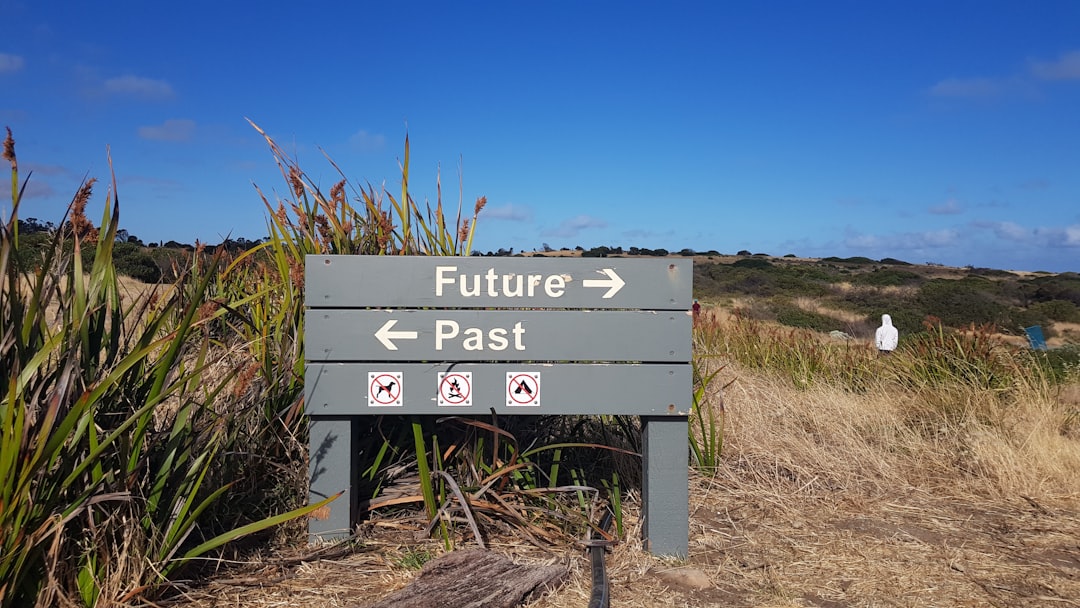


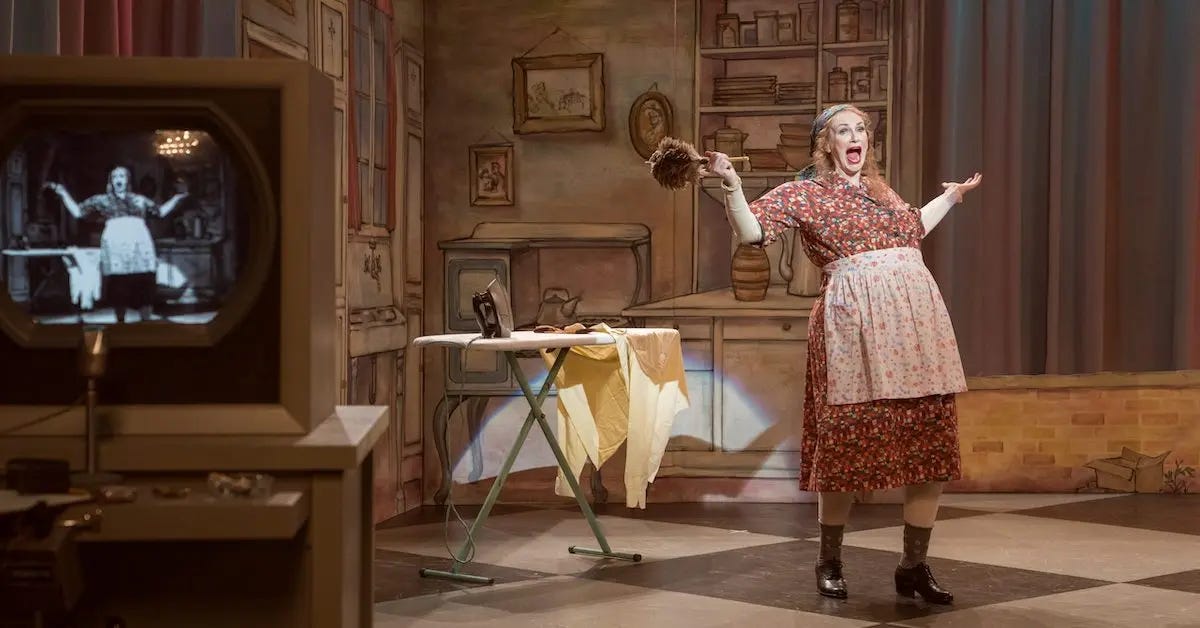
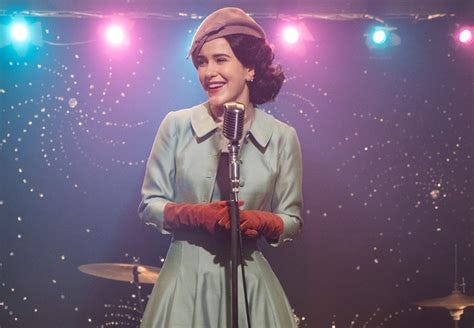
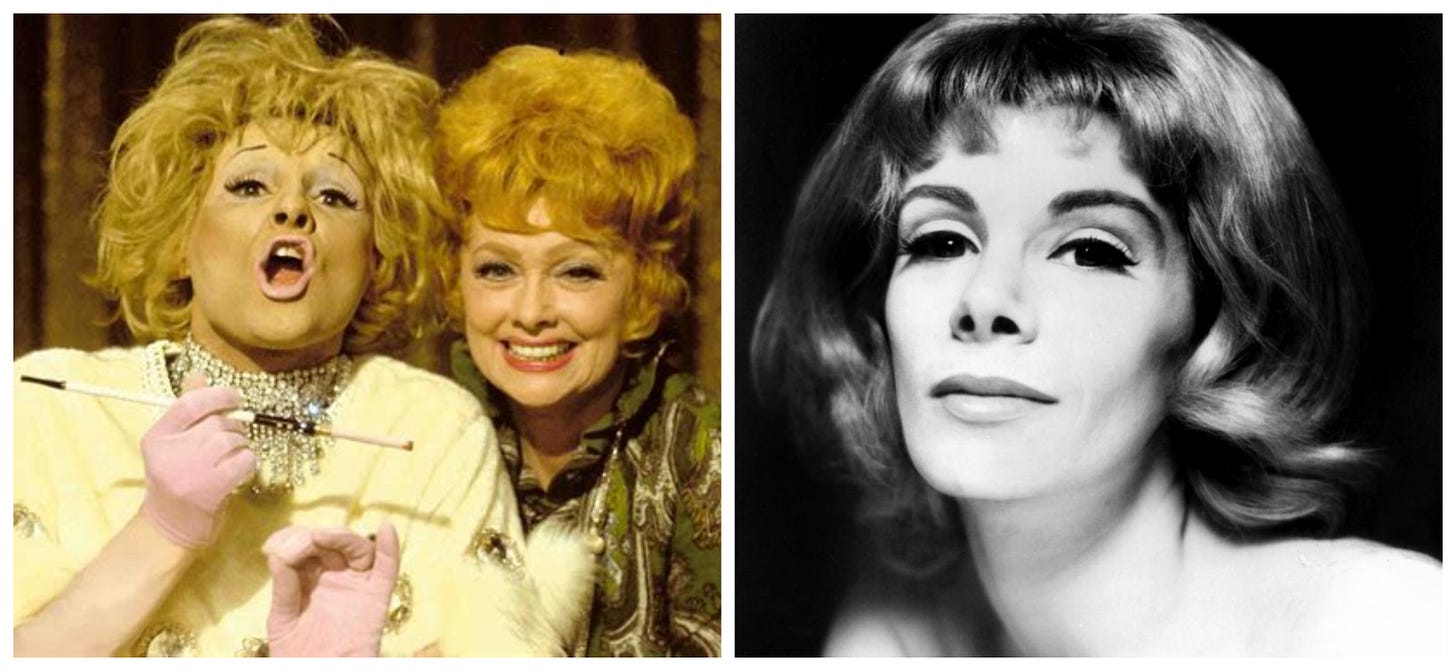
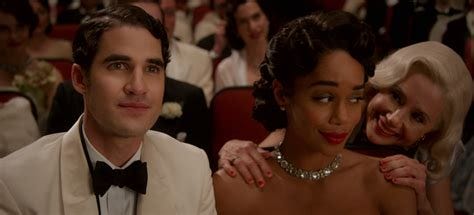
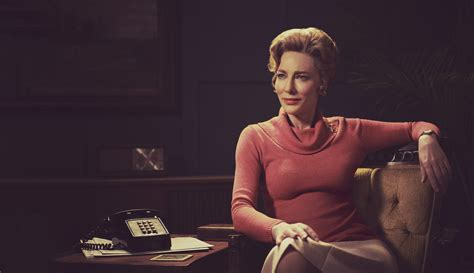
First email I've actually taken the time to read from anyone in forever. I 100% agree with the ideas and sentiment presented in your article, indeed I teach middle-school English in Australia and dedicate several lessons a year to discussing and accessing older texts and authors whose work is being re-written and opening dialogue with my class in regards to it. I firmly think a book is written and reflects the values of its time, ground-breaking novels becoming removed because they no-longer meet our current societal values and understandings is nothing short of a travesty and disservice to authors who completely went against things to get their work published. What we are viewing now is in essence a rewriting of history, which has the aim of making things easier for all, but actually runs the risk of erasing the struggles of minority groups and oppressed people of the past. Well meaning people, sometimes make mistakes. Rewriting books is one I will always fight against.
It's easy to forget that as recently as 1974, a married woman (who was, of course, married to a man) couldn't open a checking account or get a credit card in her name without her husband's permission (he had to co-sign). I'm working right now on a novel that takes place in the late 1980s. One of the characters is a trans girl. Or that's how we'd refer to her today. The social, medical, and psychological view of the 1980s was different. I'm anticipating having to explain things in my front pages.